British Vogue’s Edward Enninful: How I learnt to overcome fear when I came out
From Ghanaian immigrant to magazine icon, Edward Enninful writes on his past, his sexuality – and the dangers still facing the LGBT+ community
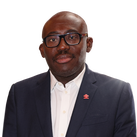
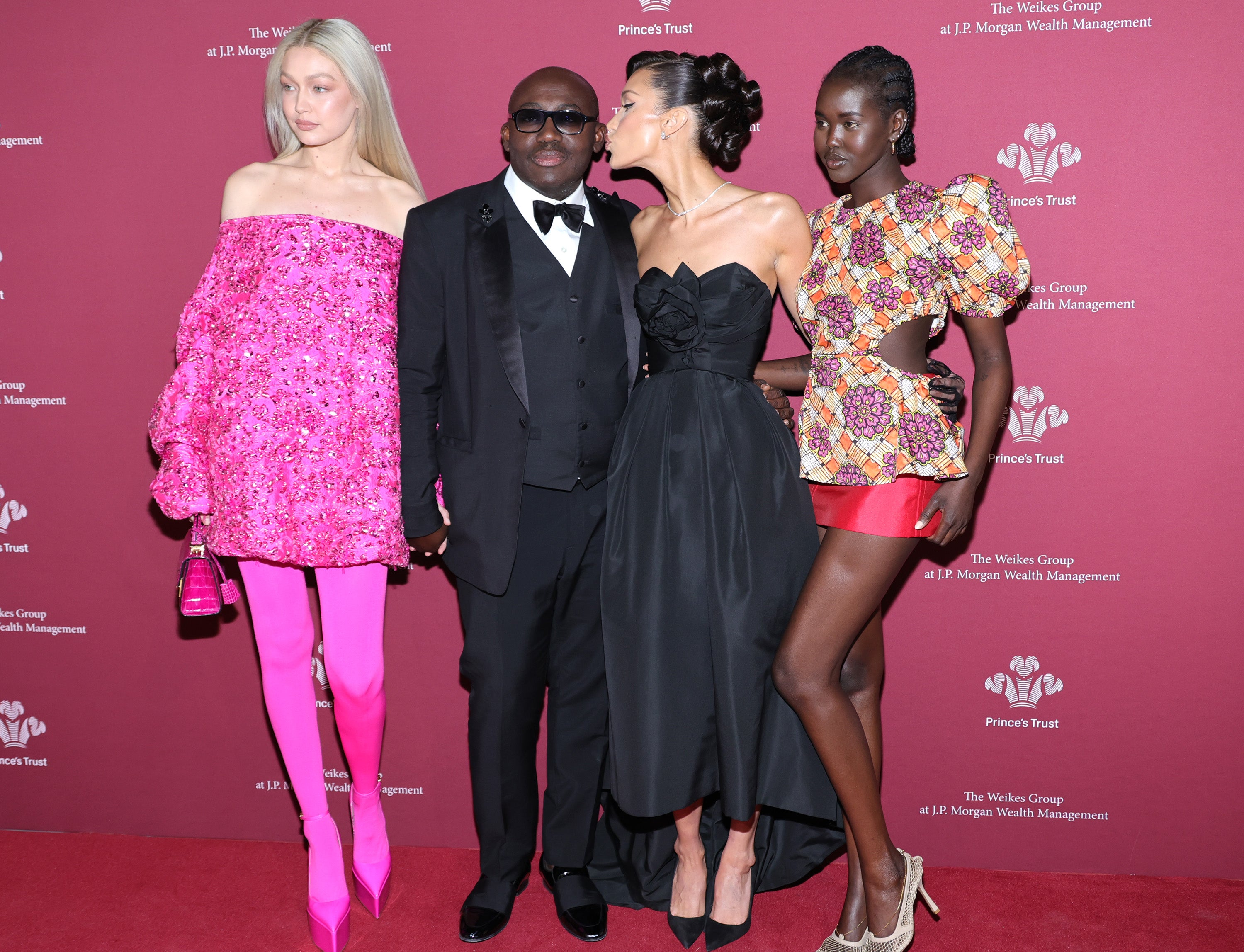
I was 16 years old when I first encountered a person who actually called themselves “gay”.
An unthinkably late proposition today, but this was 1980s London, and I was a sheltered Ghanaian immigrant – a good, Christian schoolboy who kept his head down, worked hard and always had his father’s words thundering in his ears: “If any of those gays come into this house, it will be over my dead body.”
Of course, it was fashion that opened up the world for me. The genius stylist Simon Foxton was that first queer person I met when he scouted me as a model one fateful day on the Tube. I can safely say that moment changed my life forever. It led me first to modelling, then to becoming a stylist myself, then fashion director of i-D magazine, and eventually onward to Paris, Milan and New York.
But fashion changed much more than my prospects – it changed me as well. Suddenly, I was a teenager in London and meeting gay and trans people everywhere; photoshoots, parties, gigs, clubs. But did I feel pride? It was probably more complicated than that.
Before I came out, I mostly just felt scared. Actually, scratch that. I felt petrified. The fire and brimstone that would rage in church seemed so real that I genuinely thought I was going to hell and that a life – and afterlife – of eternal damnation awaited me. This is the way for a lot of young LGBT+ people still today, especially in religious communities. The feelings are terrifying, and can seem extremely real.
In many ways, though, I was lucky. In the Ghanaian community I grew up in, the best you could usually hope for was silence and secrecy; an acceptance that you would never talk about “such things”.
I was extremely fortunate to have the mother I had. She loved me – I knew that always – and when I eventually told her I was gay at the grand old age of 21, having returned to London after a romantic epiphany on a New York dance floor, there was no question of me being exiled by the family.
Even my father came around. Sort of. I mean, he didn’t kill me.
As ever, in the LGBT+ community we rely on each other to be pioneers, and when my brilliant and charismatic cousin Michael – always my father’s favourite – came out when I was 17, the turf had been softened. By the time I came out, they seemed more cross about the fact that I’d dropped out of my law degree and was vamping around in the unreliable world of fashion and photoshoots.
Others weren’t as lucky as me. I saw friends and relatives in my community thrown out of their family homes. Meanwhile, the infamous Aids adverts, with their looming tombstones and terrifying iceberg visuals, were everywhere. Gay London – gay life – felt like it teetered on a knife’s edge.
Recently, I’ve been thinking again about my past, my sexuality and our country as London’s annual Pride celebrations come into view. It’s been on my mind at work, too. This month, British Vogue is publishing a cover story and portfolio of images by the photographer Tim Walker, the intent of which is to encapsulate the breadth and wonder of the LGBT+ community in 2023.
In the July issue, you’ll find exquisite fashion and thoughtful portraits, as well as interviews with a host of celebrities: raconteur supreme Miriam Margolyes, singers Janelle Monae and Rina Sawayama, and actors Emma D’Arcy and Bella Ramsey. It will also include interviews with the residents of Tonic Housing – the UK’s first LGBT+ residential home for older people – such as Rose Ruth, a 90-year-old transgender woman who transitioned in her eighties, and whom I adore.
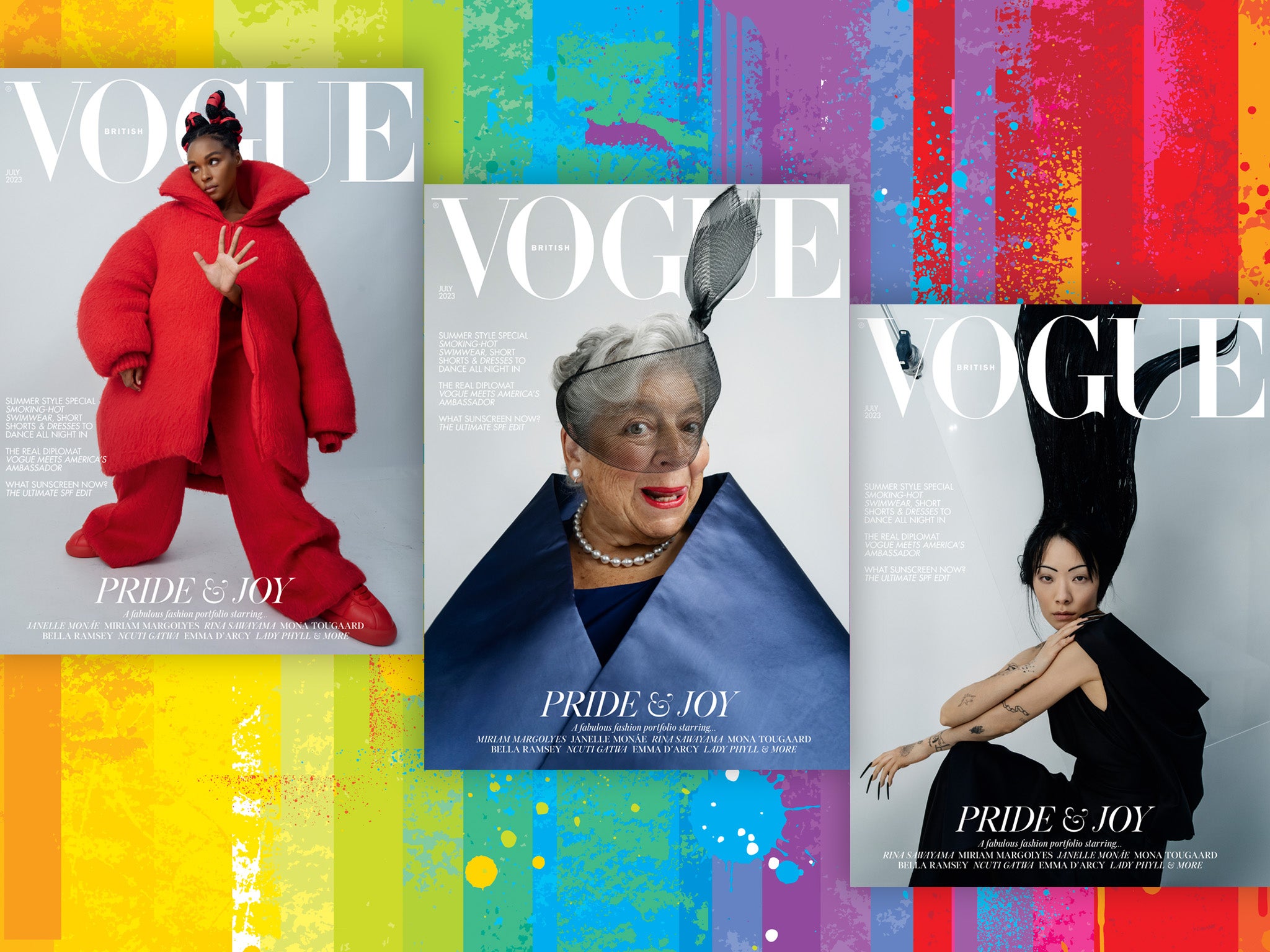
Looking through the pages of the issue, I’m struck by how powerful yet fragile so many of these lived lives seem. Despite a new generation who has rightly evolved beyond always needing those labels we once clung to, the world today remains unsafe, especially for the more marginalised in the LGBT+ community. Transphobia abounds, hate crimes are on the increase, and a scary establishment pushback seems wholly unable to grasp the idea that people are who they say they are. Gender fluidity is not new – the only difference now is that we are finally able to talk about it a bit more.
So, yes, Pride is important. Visibility is important. Inclusive human rights are very important. I love my home city – I have just bought a new house here and am excited to be continuing the work we’ve been doing at British Vogue during the past few years far into the future.
As I said, we all need to be pioneers for each other. Just like my cousin Michael was for me.
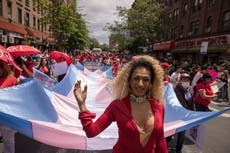

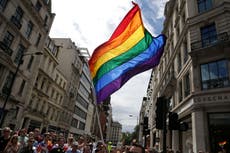



Join our commenting forum
Join thought-provoking conversations, follow other Independent readers and see their replies
Comments